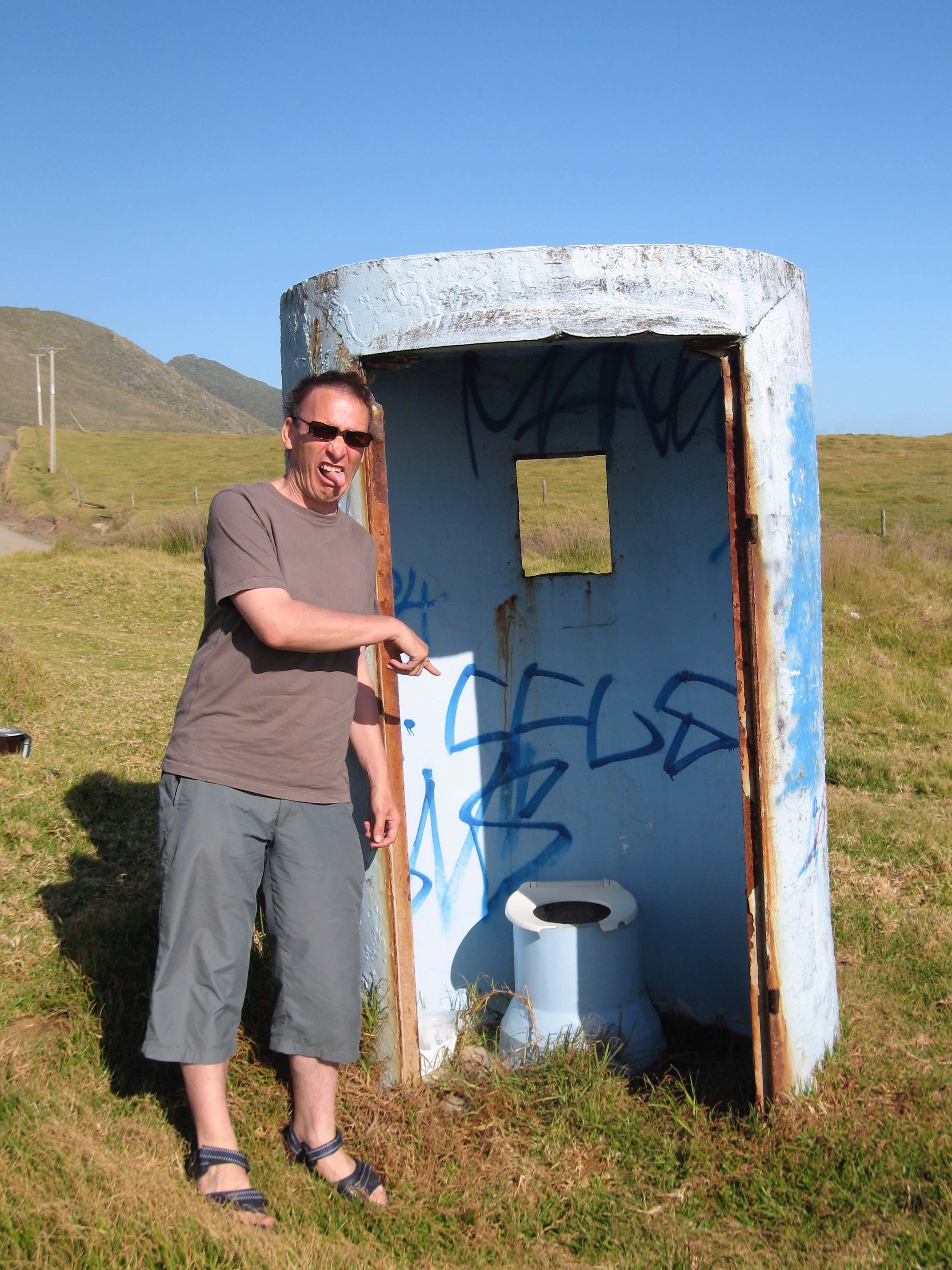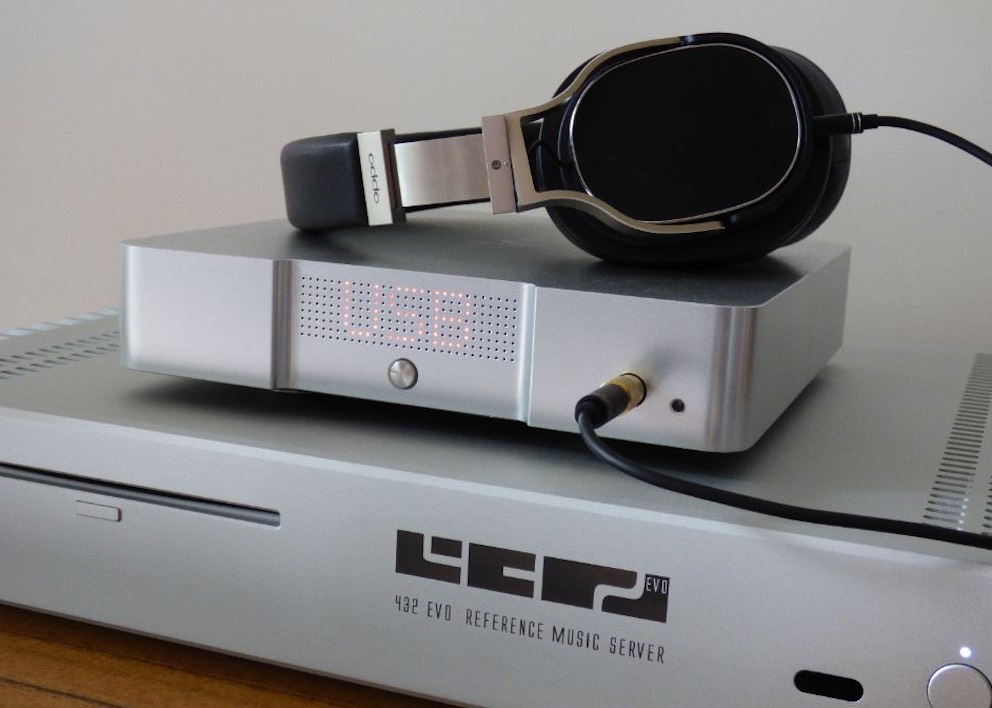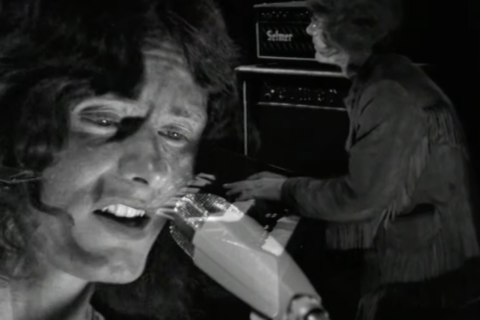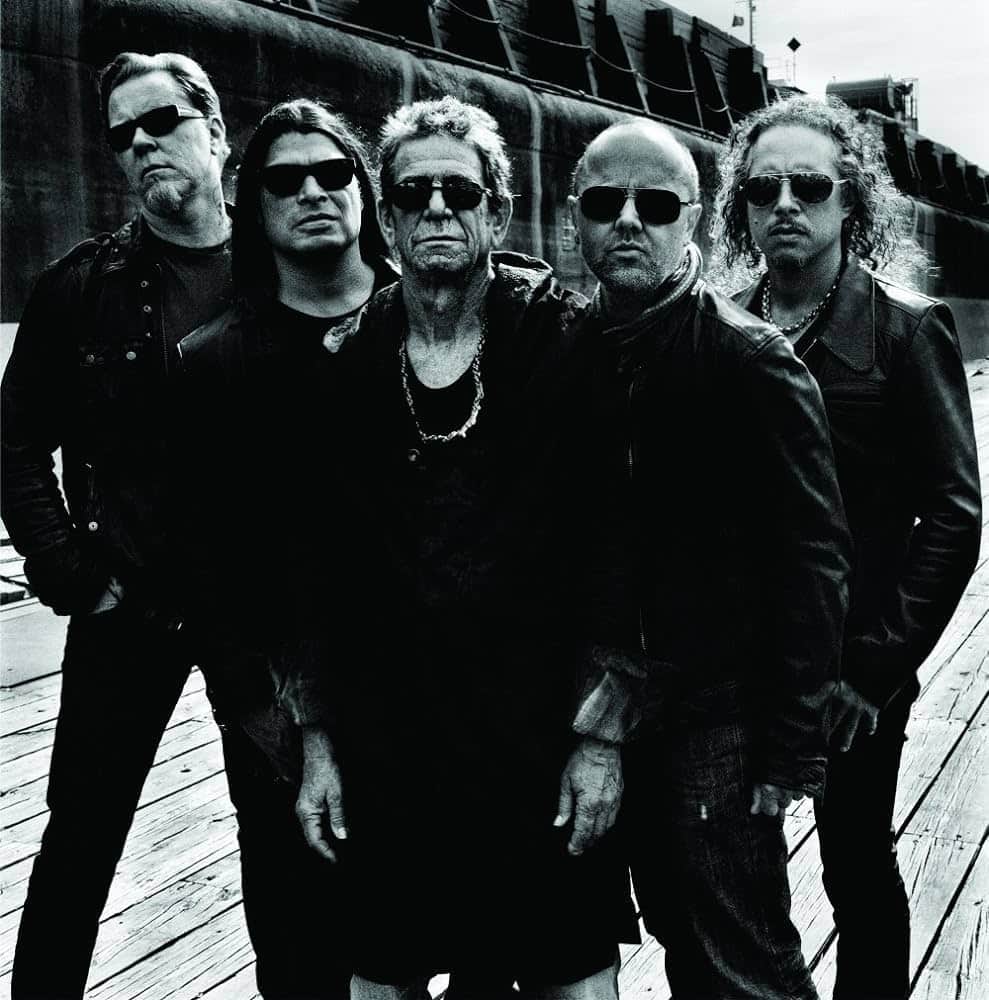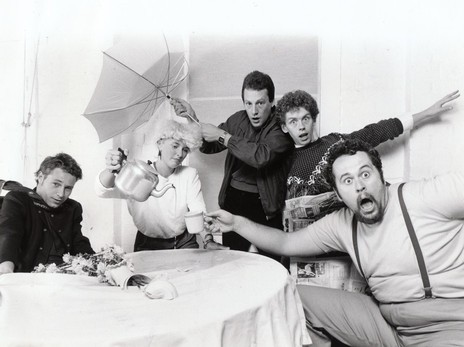GARY STEEL stole a dead man’s job and kept doing it for 19 long years.
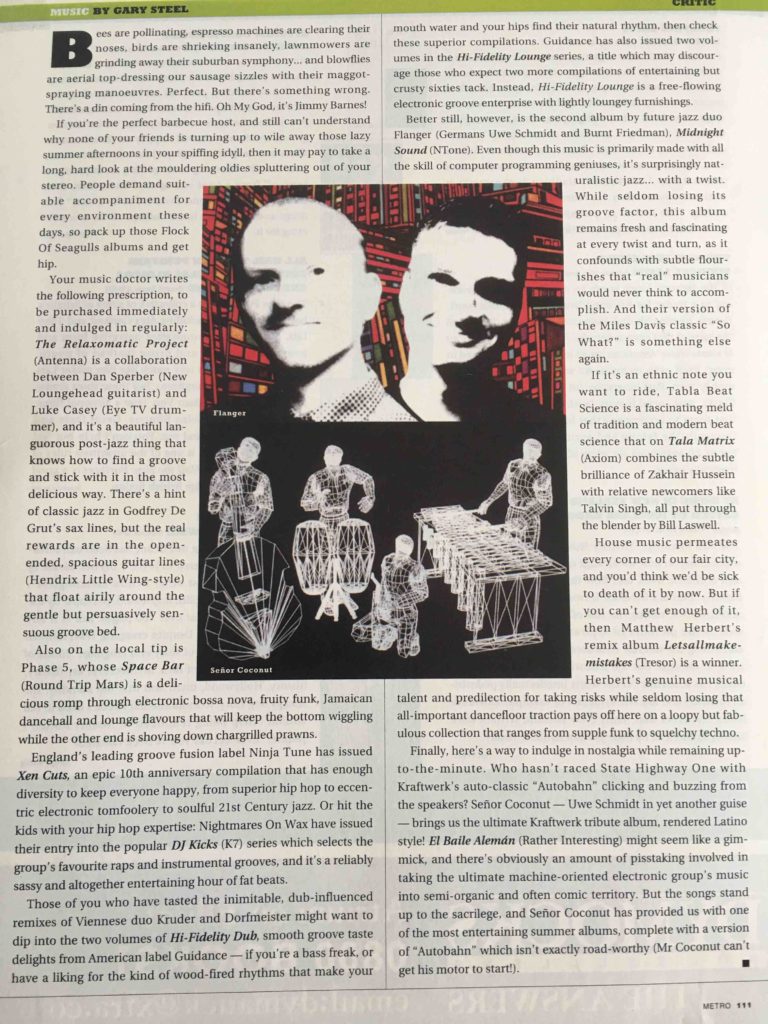
Someone had to die for me to get the coveted job of album reviewer for Metro magazine.
Late in 2000, my friend Jenny Nicholls (then Metro’s art director) called me with an urgent request: would I mind doing the album reviews for one month, at very short notice? It turned out that the reviewer, 28-year-old journalist Andrew Heal, had drowned in a kayak incident while on holiday near Nelson.
I didn’t expect to be asked to do it a second time. Sure, I’d had the odd thing published in Metro. I was especially proud of my 1996 feature on Corben Simpson, but it wasn’t like I’d been invited back to become a regular, and my first skirmish with the publication was an outright disaster.
By the mid-‘80s I’d already been the rock writer for The Evening Post daily and published several of my own music-oriented rags in Wellington but, still in my mid-20s, I’d become a fan of this brash Auckland glossy called Metro. I wasn’t an admirer of much about Auckland back then, but I loved the fact that Metro did what no other NZ magazine was doing: publishing long-form features that you could really get your teeth into. One of my criticisms of Auckland back then was that its denizens acted like they came from a metropolitan, happening city but their provincial roots and parochial mind-set ultimately betrayed them. Metro didn’t feel like it was aspiring to be something it wasn’t, it was loud and proud and simply did what it set out to do.
So, I duly sent founder a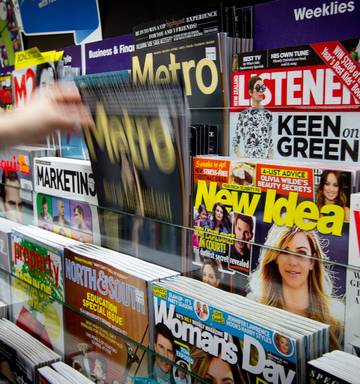 nd then-editor, Warwick Roger (RIP), a letter telling him that his album reviewer was cack and that he should hire me for the job. Colin Hogg is only nine years older than me but he slathered over “rock icons” like fucking Jimmy Barnes and his reviews read like he’d just taken an ad copywriting course. In other words, I desperately wanted his gig. Warwick’s swift reply was something along the lines of, ‘Colin is ace, shut your face and fuck right off.’ Not exactly that, but you get the gist.
nd then-editor, Warwick Roger (RIP), a letter telling him that his album reviewer was cack and that he should hire me for the job. Colin Hogg is only nine years older than me but he slathered over “rock icons” like fucking Jimmy Barnes and his reviews read like he’d just taken an ad copywriting course. In other words, I desperately wanted his gig. Warwick’s swift reply was something along the lines of, ‘Colin is ace, shut your face and fuck right off.’ Not exactly that, but you get the gist.
So after that, I kept my distance from Metro for some years, and was loathe to ever put my hand up.
Somehow, though, I’ve kept doing Metro’s album reviews for a preposterous 19 years. I still don’t know how it happened. I think when the deadline came for the next column and Andrew hadn’t come back from the dead and no one had thought to find a proper replacement I was probably asked to do another… and then another. And then by sheer force of repetition I became Metro’s album reviewer.
At first, it was a lot of fun and I approached the job with a sense of lightness that possibly leeched into those reviews. Reviewing – and especially reviewing albums – has always been my thing and I’ve done it more or less without a break for publications as diverse as Rip It Up, Sunday Star Times, NZ Listener and Real Groove since 1979. Forty years! So writing Metro’s album review column was pretty much my dream job, and I managed to fit it around the long hours running my record shop, Beautiful Music, and when that finished, the long hours editing hi-fi magazine Tone; and when that finished, it got sandwiched between miscellaneous and mostly poorly paying freelance jobs.
And during all those years I really enjoyed doing it, until I didn’t anymore, but I didn’t know how to give it up.

WHAT I didn’t expect when I started was that the new century would soon bring seismic changes to both the music industry – and the way we consume music – and to publishing, and that Metro would soon be caught up in the same struggle that besets all print publications in an era where long-read journalism is under threat.
As Metro struggled to hold onto its readers and redefine itself amid the uncertainty of the digital age, I watched a succession of equally struggling editors come and go, some of whom tried to play on what they thought of as the magazine’s strengths, while others were like the proverbial new brooms determined to revitalise with new ideas and approaches.
But through all this – a variety of editors, format changes, frequency changes, and an ever-shrinking full-time staff – I kept plugging away at my album review column at the back of the book, a fag end of the arts section. Most of those editors left me completely alone to choose the albums and write exactly what I wanted about them, and none of them blanched at the 1 and 2-star reviews. Not that there were a lot of them, but by the turn of the century we’d entered an era where the majority of music reviews were accentuating the positive and complicit with the record companies in acting as lowly promoters of the product. I never felt that promotion had anything to do with what I wrote, or that I was part of the music industry. If anything, I was writing for myself first and music appreciators second, and I never could find a good reason for being anything less than honest in my subjective evaluations.
When I chose my monthly selection I always had my senses attuned to my perception of the magazine’s demographic, and always tried to find a selection that was stylistically diverse. I couldn’t see any reason to confine reviews to pop music and while I always chose a couple of albums by well-known or “hot” artists, the idea was also to introduce new acts and not be blinkered by genre. For a long time I regularly reviewed world music, jazz, electronic and even the occasional daringly experimental release along with more accessible discs, and tried really hard to get an intriguing balance with each selection. To make it into the column, however, I had to feel that there was a backstory worth telling, or that the music was meritorious enough to warrant a recommendation.
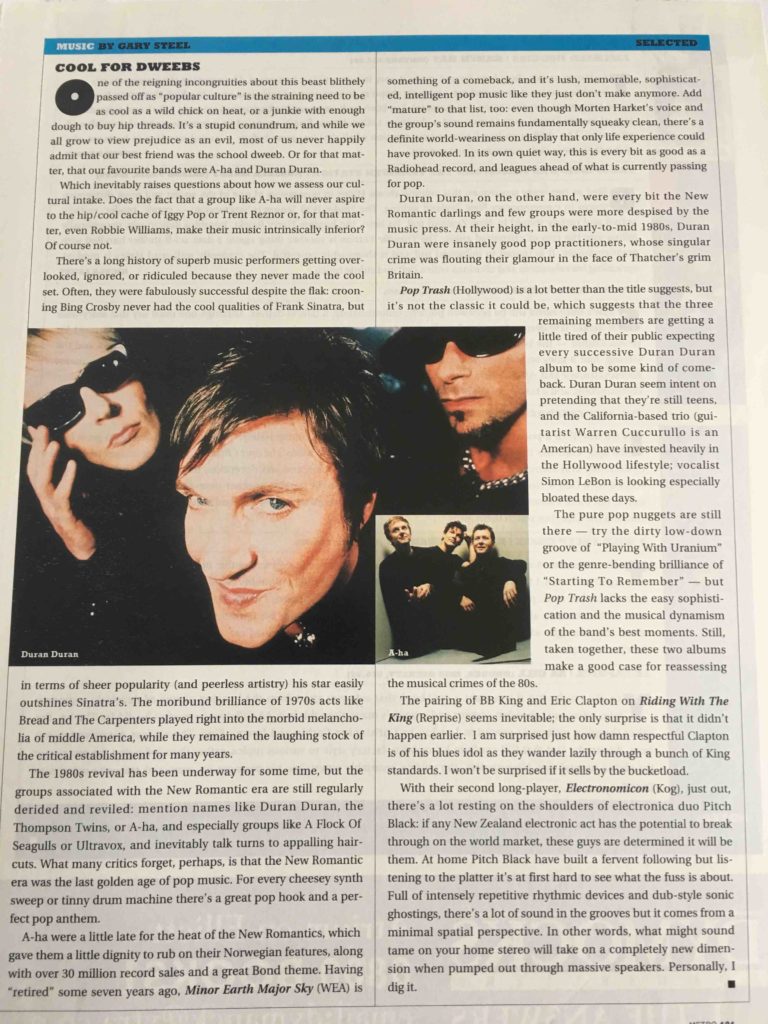
With each new editor I expected to get given the boot. Amazingly, most of the time I was left to do my thing. The only exception to this occurred around 2012 when a few ambitious Gen-Y staffers had the then-editor convinced that my selections were somewhat askew. My crime was occasionally mentioning artists who were making records before the Gen-Y staffers were born. To them, music started in the ‘90s. The then-editor deleted my largely scabrous review of a Led Zeppelin reissue, berated me for writing about a Flying Nun re-release by The Axeman, and took me to task for re-evaluating the radically remastered jazz-rock Frank Zappa classic, Hot Rats.
I knew there were people around the magazine offices who thought my choices were way too obscure, but I never took any notice: these were people who wanted to read about what they already knew, not discover new stuff.
Still, by 2015 much of the fun had gone out of it. Back in 2012 I’d been told to submit my proposed album selections to the arts editor so they could be vetted for any erroneous choices. This only lasted a few issues, but thereafter, my wings felt clipped. The editor wanted hip and happening artists reviewed, those that had a direct relationship with the zeitgeist of popular culture. Thereafter, I felt under pressure to include at least a couple of risibly populist selections just for the sake of it, even when there wasn’t really much to say about them, and the music had no real cultural cache.
Subsequently, I often ignored the albums I really wanted to review, because they fell out of the sticky marshmallow orbit of pop culture imperialism.
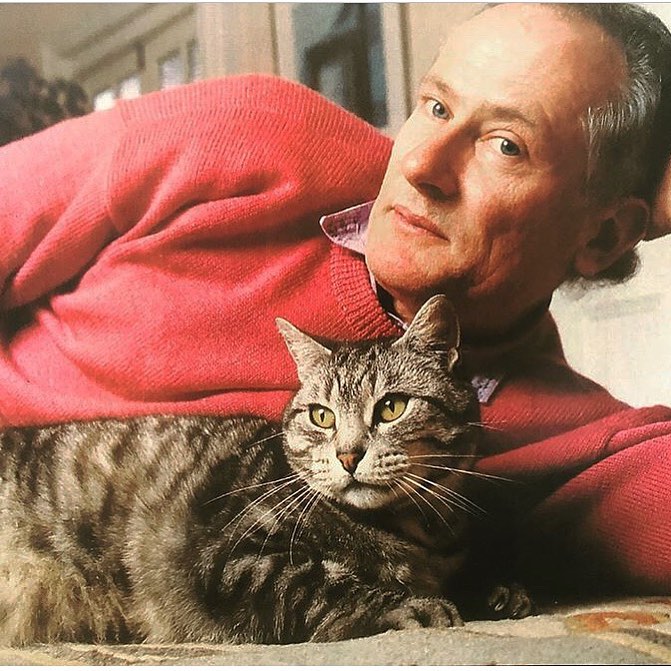
Don’t get me wrong, though. I still reviewed and raved about many outlier releases that failed to get attention elsewhere. It’s just that I was very aware of the new prerogative of web media to get as many clicks as you can, and at that stage, Metro still had some web presence. What happened then was that Bauer Media killed off the websites of their individual magazines and replaced them with Noted, an agglomeration of handpicked stuff from those magazines. As a long-time contributor, I wasn’t told about Noted, and hardly any of my Metro reviews ever made it online after that.
Oh, and Metro started coming out every other month instead of 11 times a year, which meant that most album releases would be too stale with the magazine’s long lead-time, so each time I saw copy deadline looming I had to relentlessly hassle the remaining record companies for digital streams of records expected in a few months’ time.
This became tiring, and only reaped streams of New Zealand artists, or overseas groups desperate for exposure. It became the standard for reviewers in this far- flung corner of the world to get album streams the same day the punters got to buy them. And you know what? Discombobulated, sometimes unmastered, digital files without album artwork and detailed information somewhat takes the joy away from reviewing records.
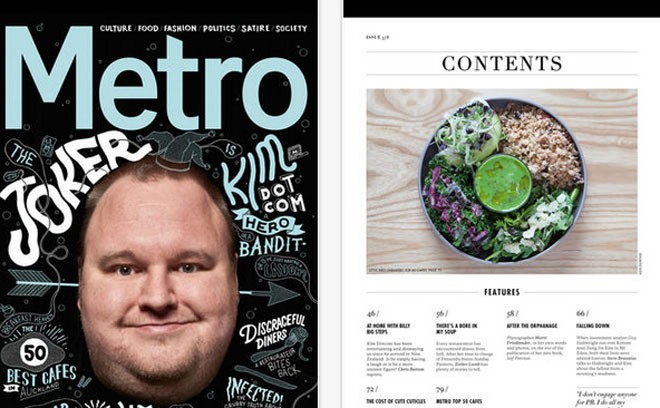 ANDREW Heal was an award-winning journalist with a bright future when a seizure in his kayak and resultant drowning stole it all away. Had he lived, Andrew might have kept up the album review column for a year and gone on to more important things. That’s what you’re supposed to do. I remember a conversation with my friend David Cohen way back in the late ‘80s where he was derisive of old rock hacks, and I also remember thinking: heck, what’s my game-plan, then? What am I going to do when I’m too old to rock, or to write about it, and have become a sad parody of my former self, a wrinkled old pariah writing about music for teens.
ANDREW Heal was an award-winning journalist with a bright future when a seizure in his kayak and resultant drowning stole it all away. Had he lived, Andrew might have kept up the album review column for a year and gone on to more important things. That’s what you’re supposed to do. I remember a conversation with my friend David Cohen way back in the late ‘80s where he was derisive of old rock hacks, and I also remember thinking: heck, what’s my game-plan, then? What am I going to do when I’m too old to rock, or to write about it, and have become a sad parody of my former self, a wrinkled old pariah writing about music for teens.
I never did find an answer to that question, because the truth is that I’ve never lost the urge to interview myself about the music I’m listening to, and as I get older my perceptions change and I constantly reappraise albums and songs because things change. And I like that.
I was once arrogant enough to think that most of the time my intellectual response to an album was one heck of a lot more interesting than interviewing a musician. It’s true that verbally articulate musicians are in the minority, because music is how musicians generally articulate themselves. But ultimately, that was the arrogance of youth and with every grey hair I get, other humans become more interesting to me. Discovering that the vast majority of musicians are interesting individuals, and making it my job to tell their stories through sites like AudioCulture, has become more important to me than analysing my own thoughts.

But the fact is, I do still love reviewing records, and my preferred format is albums because a good selection of tracks over 40 minutes or so is so much more than what it seems. Maybe digital streams are heralding the death of the album, but that thinking is somehow flawed. As long as artists are making albums, then music fans (as opposed to the general public) will listen to them, whether they’re indigestible 20-hour feasts or six-track mini-albums. In other words, what an album really means isn’t a slice of vinyl with two lots of 15 minutes but a curated selection of original music. And I love that.
You learn to be pragmatic as a freelancer. I was the music correspondent at the Sunday Star Times in 1999 when Sue Chetwin came on board as the new editor and promptly dumped my ass in favour of her pal, Grant Smithies. I was pissed off because I wasn’t even told: I was half-way through my next review column when I found out about it through my own sources, and when I complained to Chetwin about the poor manners she was a real bitch about it. Life as a freelancer: you can’t afford to be too sensitive.
There’s now a shiny new broom at Metro, however. A young broom, who wants to shake things up, and I agree that it’s time. Its new editor is Spinoff’s former music editor, Henry Oliver, and he’ll be revising the magazine’s music and review content. I’m excited to see what Henry will bring to the table in terms of ideas. Doing conventional reviews of conventional albums in a magazine that only comes out every other month and has long lead times just doesn’t make sense. It’s the perfect time for me to hang up my hat, too. I might still pitch the odd story to Henry, but I’m super-keen to figure out a new way to review online that’s true to where my head is at. These days, it’s hard to find reviews of records and concerts in daily newspapers and music features tend to focus either on boring industry stuff or personal shit that has nothing to do with music. So maybe there is still a niche for some old dude with too many opinions?

